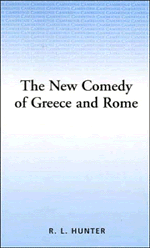6 - The didactic element
Published online by Cambridge University Press: 01 June 2011
Summary
From its earliest beginnings Greek poetry was intimately bound to the social, moral and political life of the societies which gave birth to it. Poetry was not the plaything of a cloistered elite, but a powerful medium for the transmission of ideas. In the epics of Homer the element of moral teaching is as clear as in the more overtly didactic poetry of Hesiod. The poets of the following period, known as the Archaic Age, often speak directly to their fellow citizens on matters of social and political importance; in the case of men such as Archilochos, Alcaios, Solon and Theognis, we see poets taking a very active role in the public affairs of their societies. The drama of fifth-century Athens is the direct heir to this tradition. Classical tragedy, no less than Aristophanic comedy, is a product of the polis and reflects continually upon the life of the polis. Plays such as The Persians and The Eumenides of Aeschylus, the Antigone of Sophocles and The Trojan Women of Euripides are merely very striking instances of this general truth. On the comic stage, Aristophanes stresses again and again his role as a social and political reformer and, although we must not simply accept these claims at face value, there can be no doubt that drama was an accepted medium in which to air matters of general importance to the citizens.
- Type
- Chapter
- Information
- The New Comedy of Greece and Rome , pp. 137 - 151Publisher: Cambridge University PressPrint publication year: 1985



